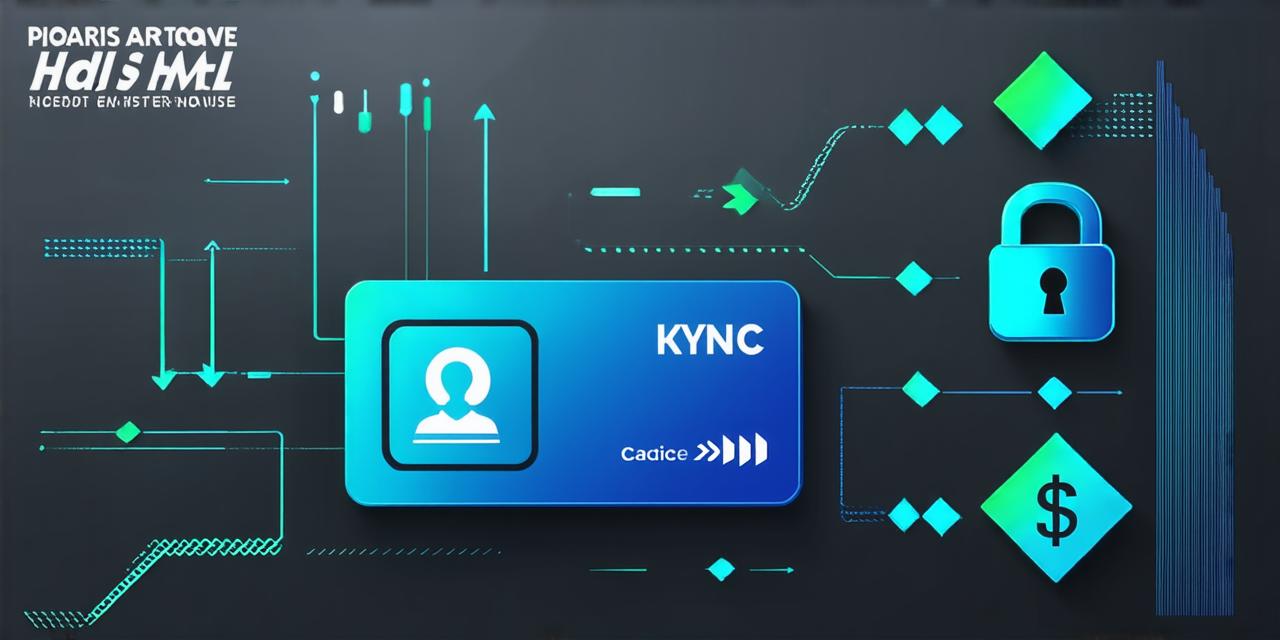KYC, or Know Your Customer, is a set of processes and procedures used by financial institutions to verify the identity of their customers. In the world of blockchain, KYC has become an essential component of any decentralized platform that wants to ensure compliance with anti-money laundering (AML) regulations.
In this comprehensive guide, we will explore everything you need to know about KYC in blockchain, from its history and purpose to its implementation in various blockchain applications. We will also discuss the challenges faced by KYC in the blockchain space and how they can be addressed.
KYC in Blockchain: A Brief Overview
Blockchain technology has disrupted many traditional industries, including finance. However, with this new technology comes new challenges. One of these challenges is ensuring compliance with AML regulations. These regulations require financial institutions to verify the identity of their customers and monitor their transactions for any suspicious activity.
KYC in blockchain involves using various techniques to verify the identity of users and ensure they are not involved in any illegal activities. This includes collecting personal information, such as name, address, and date of birth, as well as verifying government-issued identification documents.
The Purpose of KYC in Blockchain
KYC is an essential component of any decentralized platform that wants to ensure compliance with AML regulations. The purpose of KYC in blockchain is to prevent the use of blockchain for illegal activities such as money laundering, terrorism financing, and sanctions evasion. These activities are a major concern for governments around the world, as they can facilitate the transfer of funds across borders without detection by law enforcement agencies.
KYC also helps protect users from fraud and scams. By verifying the identity of users, blockchain platforms can ensure that they are legitimate individuals and not fraudsters or criminals. This is particularly important in the world of cryptocurrencies, where it is easy for fraudsters to use fake identities to carry out scams.
The Challenges of KYC in Blockchain
Despite its importance, KYC faces several challenges in the blockchain space. One of the main challenges is the lack of standardization in the industry. There is currently no single standard for KYC in blockchain, which makes it difficult for different platforms to interoperate and share information.
Another challenge is the scalability of KYC processes. As more users join decentralized platforms, it becomes increasingly difficult to verify their identities quickly and efficiently. This can lead to longer wait times and higher transaction fees.
Finally, there is a concern about privacy in blockchain-based KYC systems. Collecting personal information and verifying government-issued identification documents raises concerns about user privacy and data protection.
How to Implement KYC in Blockchain
Despite the challenges, there are several ways to implement KYC in blockchain. One approach is to use a third-party identity verification service that specializes in KYC. These services can provide a standardized way of verifying identities and sharing information across different platforms.
Another approach is to build KYC into the blockchain platform itself. This involves creating a decentralized identity system that can be used by all users on the platform. This approach requires careful consideration of privacy concerns and the need for standardization.
Real-Life Examples of KYC in Blockchain
There are several real-life examples of KYC in blockchain, including:
Bitcoin
Bitcoin, the first cryptocurrency, is an example of a decentralized platform that has implemented KYC. Bitcoin exchanges require users to verify their identities before they can buy or sell bitcoins. This helps prevent money laundering and other illegal activities.
Ethereum
Ethereum, the second-largest cryptocurrency by market capitalization, is another example of a decentralized platform that has implemented KYC.
Exchanges require users to verify their identities before they can buy or sell ethers. This helps prevent illegal activities and protects users from fraud and scams.
Chainalysis
Chainalysis is a blockchain analytics company that specializes in KYC. The company uses machine learning algorithms to analyze transaction data and identify patterns of suspicious activity. This information can be used by financial institutions to verify the identities of their customers and detect any illegal activities.
FAQs about KYC in Blockchain

Q: What is KYC in blockchain?
A: KYC in blockchain involves using various techniques to verify the identity of users and ensure they are not involved in any illegal activities.
Q: Why is KYC important in blockchain?
A: KYC is an essential component of any decentralized platform that wants to ensure compliance with AML regulations and protect users from fraud and scams.
Q: What are the challenges of KYC in blockchain?
A: The main challenges of KYC in blockchain include the lack of standardization, scalability issues, and concerns about privacy and data protection.
Q: How can KYC be implemented in blockchain?
A: KYC can be implemented in blockchain through third-party identity verification services or by building a decentralized identity system into the platform itself.
Summary
KYC is an essential component of any decentralized platform that wants to ensure compliance with AML regulations and protect users from fraud and scams. Despite its importance, KYC faces several challenges in the blockchain space, including a lack of standardization, scalability issues, and concerns about privacy and data protection. However, by implementing KYC effectively, blockchain platforms can create a more secure and trustworthy environment for their users.
